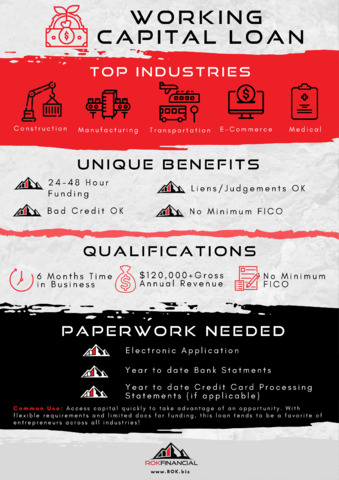
In the dynamic financial landscape, entrepreneurs have access to a plethora of options when it comes to securing large business loans. Traditional banks, with their established reputation and extensive networks, offer a reliable and time-tested approach. On the other hand, alternative lenders, leveraging streamlined processes, provide a convenient and efficient alternative. With this diverse array of avenues, entrepreneurs can explore and choose the financing solution that best aligns with their unique business needs and goals.
In this comprehensive article, we will thoroughly dissect the key aspects of both traditional banks and alternative lenders. We’ll shed light on their unique requirements, application processes, and overall suitability for ambitious businesses seeking rapid financial growth and success. By delving into the intricate nuances of each option, we aim to equip entrepreneurs with the knowledge and insights needed to make informed decisions about their financing strategies.

Large Business Loans vs. Small Business Loans: Understanding the Differences
Understanding the differences between these two loan types is crucial for businesses making informed financial decisions. By delving into the intricacies and nuances of each, organizations can navigate the complex world of finance with confidence. This understanding empowers businesses to select the most suitable loan option aligned with their goals and financial circumstances.
Eligibility Criteria:
To be eligible for large business loans, it is crucial to have a well-established business history that demonstrates reliability, exceptional creditworthiness, and proven financial stability. Lenders meticulously examine extensive financial records, taking into account factors such as profitability and substantial collateral. Moreover, a detailed and comprehensive business plan outlining the precise utilization of funds is often required. By providing these additional details, businesses can enhance their chances of securing the financing they need to support their growth and expansion.
Interest Rates and Terms:
Interest rates for large business loans are generally lower due to the established nature and financial stability of the borrowing companies. The extended repayment periods provide flexibility for large businesses, allowing them to manage cash flow effectively. Lenders offer competitive interest rates to attract established businesses seeking substantial funding.
Application Process:
The application process for large business loans is intricate and time-consuming. Lenders conduct in-depth financial analysis, requiring detailed business plans, audited financial statements, and collateral valuations. The approval process can take several months, involving extensive due diligence to assess the viability of the project.
Key Aspects of Traditional Banks for Large Business Loans
Traditional banks have long been the trusted source for business loans, offering security and reliability. With their extensive experience and expertise, they provide guidance to navigate the complexities of the financial landscape.
Requirements of Bank Business Loans
Banks typically require a comprehensive set of documents and financial records from loan applicants. These may include audited financial statements, business plans, collateral, and a detailed credit history. The purpose behind these stringent requirements is to establish a robust filtration system, ensuring that only financially stable businesses with a proven track record secure loans.
By safeguarding the bank’s interests and managing risks, a stable lending portfolio is maintained. Promoting a healthy lending environment. This fosters trust among borrowers, encourages financial support, and supports economic growth in the communities served.
By scrutinizing the financial health of the applicants, banks can make informed lending decisions, minimizing the risk of default and potential losses. Additionally, the thorough evaluation of the loan applicants’ financial position enables the bank to assess the viability and sustainability of the proposed business venture, contributing to the overall economic stability of the community.
How To Apply for a Bank Business Loan
Applying for a business loan from a traditional bank can be a time-consuming and meticulous process. Entrepreneurs must compile necessary documents, fill out extensive forms, and patiently wait for approval.
Bank loans offer stability and financial backing for long-term business growth. Despite the arduous process, the comparatively lower interest rates and credibility associated with these loans are rewarding. The thorough application process ensures only serious and committed entrepreneurs can access these benefits, enhancing borrowers’ credibility and the bank’s confidence in supporting their ventures.
Key Aspects Of Alternative Lenders for Large Business Loans
In contrast to traditional lenders, alternative lenders embody the modern era’s fast-paced, digital approach to financing. Making them an attractive choice for businesses seeking rapid financial solutions.
An increasing number of alternative lenders are being associated with data-driven approaches to better understand and cater to the unique financing requirements of their clients. By leveraging advanced data analytics, these lenders can offer more personalized and tailored funding options. Empowering businesses to grow amidst the challenges of today’s fiercely competitive market.
Whether it’s a small startup or an established enterprise, these contemporary financing solutions offer a myriad of benefits, including faster approval times, simplified application processes, and greater accessibility, ensuring businesses can access the capital they need to seize opportunities and achieve their goals.
Requirements of Alternative Business Loans
Alternative lenders typically have a more lenient approach to requirements compared to traditional banks. While they do scrutinize the applicant’s creditworthiness, they might be more willing to consider unconventional factors like social media presence, online reviews, and even industry-specific metrics.
This flexibility opens doors for businesses with less-than-perfect credit scores, providing them with opportunities that might otherwise be denied. By embracing a broader range of evaluation criteria, alternative lenders contribute to a more inclusive and accessible financial landscape, empowering entrepreneurs and fostering innovation.
How To Apply For an Alternative Business Loan
The application process with alternative lenders is designed for simplicity and speed, providing entrepreneurs with a seamless and efficient experience. Apply for loans conveniently online and enjoy a hassle-free journey from submission to approval.
Alternative lenders offer a major advantage with their quick loan approval process. Unlike traditional banks, which can take a long time, alternative lenders can provide approvals in just a few days. This fast response time allows entrepreneurs to access funds promptly, helping them seize business opportunities without delay.
Alternative lenders provide entrepreneurs with a refreshing alternative to traditional banking. With simplicity, convenience, and speed, they offer efficient financing solutions for those in need. This remarkable speed not only saves time but also acts as a game-changer for businesses facing urgent financial needs, providing a lifeline for growth and success.
Taking Out a Large $1 Million Loan: Traditional Banks vs. Alternative Lenders
Obtaining a $1 million loan is a critical decision for businesses, with traditional banks and alternative lenders offering distinct approaches. This summary explores their differences in shaping business trajectories and facilitating growth opportunities.
Traditional Banks: The Pillars of Stability
Traditional banks, with their enduring reputation and time-tested practices, have been the cornerstone of large-scale financing for generations.
- Rigorous Evaluation: Banks subject loan applicants to exhaustive scrutiny. For a $1 million loan, businesses must provide an extensive array of documents, including audited financial statements, business plans, and collateral details. The meticulous evaluation is aimed at ensuring the business’s stability and ability to repay the substantial sum.
- Lower Interest Rates: One of the key advantages of obtaining a $1 million loan from a traditional bank is the potential for lower interest rates. Banks can offer competitive rates, leveraging their access to low-cost funds and established market presence to provide businesses with favorable borrowing terms.
- Long-standing Relationships: Traditional banks often prioritize businesses with whom they have established relationships. Long-term clients with a proven track record may find it easier to secure such significant loans, benefitting from the trust cultivated over years of financial collaboration.
- Asset-Based Collateral: Banks may require substantial collateral, such as business assets, real estate, or other valuable holdings, to secure a loan of this magnitude. Collateral acts as a safeguard, providing the bank with security in case of default.
Alternative Lenders: The Vanguard of Innovation
In recent years, alternative lenders have emerged as a dynamic force, revolutionizing the lending landscape and challenging traditional norms.
- Speed and Agility: Alternative lenders prioritize speed and efficiency. The digital nature of their operations allows for swift processing, enabling businesses to obtain approval and access funds in a fraction of the time it would take with traditional banks. For businesses in urgent need of capital, this rapid turnaround is invaluable.
- Digital Accessibility: Applying for a $1 million loan from an alternative lender is often a seamless, digital experience. Businesses can initiate the application process online, upload necessary documents digitally, and communicate with lenders through virtual channels, enhancing accessibility and convenience.
- Flexible Criteria: As we mentioned above, alternative lenders often have more flexible eligibility criteria. While creditworthiness is still assessed, these lenders consider a broader range of factors, including revenue, cash flow, and industry stability. This inclusivity opens doors for businesses that might face challenges meeting the stringent criteria of traditional banks.
Conclusion
In conclusion, when it comes to choosing between traditional banks and online lenders for large business loans, there are several factors to consider. Traditional banks offer stability and lower interest rates, but their strict requirements and lengthy processes can hinder time-sensitive opportunities. On the other hand, online lenders provide speed, flexibility, and accessibility, making them a lifeline for businesses in urgent need of funds.
To make the best decision for your business, it’s crucial to understand your specific requirements, financial health, and tolerance for the application process’s duration. By carefully weighing these factors and learning from real-life examples like Sarah’s, you can navigate the financial landscape confidently and secure the support you need to take your business to new heights.
If you’re ready to explore your options and apply for a small business loan, we encourage you to apply below. ROK Financial is here to help you every step of the way. Don’t miss out on this opportunity to fuel your business’s growth!